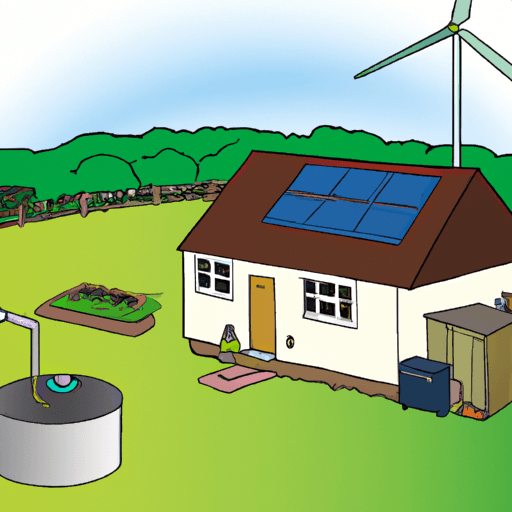Sustainable Living Practices for Rural Communities
In our ever-changing world, there has been an increasing emphasis on the importance of sustainability. The idea of living sustainably, particularly in rural communities, is more than just an environmental practice; it is an approach to life that can have profound effects on the quality of life and the economy of these communities. It involves adopting practices like the use of renewable energy, organic farming, water conservation, and waste management, and we will explore each of these in turn.
Renewable Energy
One of the simplest and most effective ways rural communities can become more sustainable is through the use of renewable energy sources like wind turbines, solar panels, and bioenergy. Having several small-scale, locally-owned renewable energy systems can drastically reduce carbon emissions and pollution, significantly contributing to environmental conservation. For instance, in a remote rural area of Bangladesh, solar home systems have been introduced, not only reducing carbon emissions but also providing a much-needed source of income for the inhabitants. However, challenges like initial high installation costs and maintenance can be mitigated through government subsidies and awareness creation on the cost-saving advantages in the long run.
Organic Farming
In places where agriculture is an integral part of the community's lifestyle, organic farming can effectively enhance sustainability. Organic farming avoids the use of synthetic pesticides and fertilizers, promoting biodiversity and maintaining soil fertility. A shining example is the Indian state of Sikkim, where the whole region has converted to organic farming, leading to environmental benefits, health improvements, and tourism attraction. Yet, challenges like lack of knowledge and perceived low yields can be addressed through farmer training and education on the long-term benefits of organic farming.
Water Conservation
Using water efficiently and preventing wastage is key to sustainability, especially in rural areas often situated in water-scarce regions. Methods such as rainwater harvesting or greywater recycling can be used to reduce water usage in these areas. In arid Rajasthan, India, communities have adopted ancient water harvesting techniques, leading to the rejuvenation of the whole region. However, the main challenges of awareness and technical know-how can be tackled through community workshops and demonstrations.
Waste Management
Rural communities also need to manage waste effectively to be truly sustainable. This can involve starting recycling programs, composting organic waste for use in agriculture, rather than sending it to landfills. An example can be seen in Kamikatsu, Japan, where the entire town is committed to achieving zero waste. Approaching such practices often faces resistance due to the perceived inconvenience and can be remedied through continuous sensitization and showcasing the environmental and economical benefits.
Engaging and Educating the Rural Community
To truly embrace sustainable living, rural communities need to be educated and engaged about the benefits of these practices. This can be achieved through community workshops, school programs, and public awareness campaigns. Additionally, making sure the solutions are cost-effective and the benefits will be realized in the short to medium term can incentivize more people to adopt them. Through this, we can ensure a better future for our environment and communities.
In conclusion, adopting a sustainable lifestyle is not only beneficial for the environment, but it also significantly contributes to the quality of life and economic well-being of the community. Therefore, it is imperative that rural communities be encouraged and supported to take up these practices for a brighter future.

















Comments
Leave a Comment